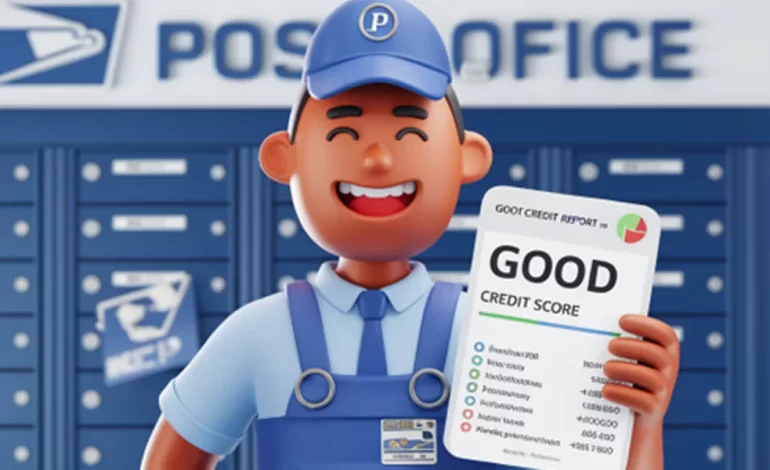
How USPS Employees Raise Credit Score By 100 Points Fast?
Did you know that there are approximately 525,469 career employees and 114,623 non-career employees in the United States? Those who live in the US know that USPS workers are hardworking but pay low wages for their efforts.
Although the Biden government is gone and Trump has won the constituencies, no special financial package has been announced yet for the USPS and Federal employees. Even though postal employees sometimes do not receive paychecks, they live on savings or get help from their family and friends.
Because of such money issues they are facing, no one notices how this may affect their credit scores. Having low or bad credit makes their lives harder, but the good news is that it is not impossible to fix your credit score. Below are a few tested ways to raise your credit score effectively, which will strengthen you and open many borrowing options during financial emergencies.
Here are 10 ways for postal and federal employees to increase their credit scores by 100 points—most often, this can be done within 45 days.
1️⃣ Thoroughly Check Your Credit Report:
Periodically, ask for your free credit report from each of the major credit bureaus: Experian, Equifax, and TransUnion. Check for errors or missing information that lower your credit score and take action accordingly to correct them.
2️⃣ Pay Your Bills on Time:
Paying your bills on time or earlier really helps build or boost your credit score. The best method of paying bills on time is to set up automatic payments using your bank’s system or by contacting your credit card company.
3️⃣ Pay Off Your Collections:
Setting up a collection account can lift your credit score, but remember that the history of the debt collection status remains in your credit report for seven years.
4️⃣ Clear Missed Payments:
If you missed a payment, try to sort it out as soon as possible. A missed payment can easily lower your credit score by 100 points. It may take some time to show up on your credit report, but your credit score depends upon your current activities, not on your past credit footprints.
5️⃣ Keep Balance Low on Your Credit Cards:
According to financial experts, the thumb rule is to keep your line of credit balance at or below 10% to improve your credit score. Any balance close to or above 10% will count as an over-limit and reduce your credit score.
6️⃣ Pay Debts Instead of Transferring:
Transferring a balance to benefit from zero or reduced interest rates can be beneficial. However, reducing your existing debt is crucial before taking on additional obligations. According to FICO, reducing your total debt is among the most effective strategies for improving your credit score.
7️⃣ Don’t Close Paid-Off Accounts:
Do not close your unused credit card accounts, as this dramatically reduces your credit score. Keep them open and show that you can effectively manage credit. A long credit history always helps to improve your score fast.
8️⃣ Avoid Too Many Credits Inquires:
If you are planning to buy a car, a mortgage, or a new credit card, a lender or credit card company pull your credit report to see your creditworthiness and the rate they will charge. Having too many credit inquiries within a short period can negatively impact your credit score—the best way to avoid this is by clustering your applications within a gap of days or weeks.
9️⃣ Have a mix of credit types:
FICO favours consumers who maintain a mix of installment loans and revolving credit, such as credit cards. Having one or two credit cards is wise if you’re paying off student loans, a car loan, or a mortgage. While having excessive credit cards can be detrimental, possessing at least one can demonstrate your ability to manage credit responsibly.
🔟 Carefully Apply for New Credit:
Only apply for new credit, when necessary, after all your other borrowing options have been exhausted. Never apply for a loan or credit card to pay luxuries or boost your credit score. Having too many credit accounts open within a short time frame can lead to lower credit scores.
Building a strong credit foundation is also important for postal and federal workers for a bright financial future.
Understanding and implementing the above tips helps postal and federal employees improve their credit scores. Building a strong credit score opens several borrowing options at lower rates and increases the chances of approval. However, if you’re looking for dedicated loans for USPS and Federal workers, you can compare and find a great deal with us.



